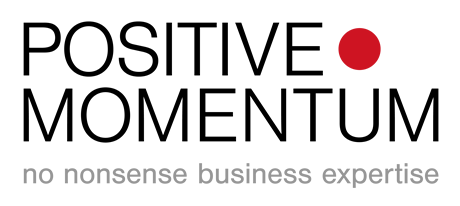Imagine a world where we do not let our weaknesses define us; a world where instead we naturally focus on our strengths to excel, lead and grow; a world where our bias does not restrict us or those around us.
In light of this year’s International Women’s Day, it’s time to #BreakTheBias. What is your leadership bias preventing you from achieving?
When I reflect on recent conversations I have had with clients as they grapple with breaking their own biases on what their leadership style ‘should’ and ‘could’ look like, any number of options emerge. This raises questions in our minds – ‘should I be more like my current leader or a high-profile leader I admire?, ‘do I need to be more dictatorial to make my mark?’, or ‘what qualities am I missing to make me stronger?’.
I always land on the recommendation that your leadership approach should be unique and be authentic to you as an individual. Today on IWD, I aim to challenge the biases that may be restricting you from being the leader you truly want to be.
I’m keen to hear if these 3 insights help you find more answers.
1. Remember what modern successful leaders teach us.
All inspirational leadership is authentic in its own right. Focus on the high impact strengths that lead to recurring successes.
Transformative leaders such as Michelle Obama have paved the way with empathy, high emotional intelligence and humility. They haven’t thrived by being cut-throat, dictatorial or arrogant – an approach many of us will have witnessed leaders demonstrate throughout our careers. Modern leaders build strong, diverse and inclusive teams by gathering a following, not by blindly demanding more. Jim Collins, author of Good to Great, found two common traits of CEOs in companies that transitioned from average to superior market performance: humility and the determination to advance the cause of an organisation. Traits such as humility aren’t measured on paper. They are reflected in how you treat the receptionist at an interview or listen to those around you. There is value in empathy and matching EQ with IQ as a leader. This is what 21st-century leadership tries to embrace. Matthew Syed, in Rebel Ideas, encourages us that truly diverse, cognitive thinking can make positive changes to everyone and everything. Strong leadership is exemplified in our teams and those around us, not in ourselves.
2. Play to your strengths. Use your talent card.
Recent data shows that the number of women in senior leadership roles has remained relatively steady. The percentage of women in Fortune 500 and S&P 500 CEO roles is declining globally. Whilst there are various factors for this – cultural bias, unconscious bias and stereotypes, competency is not one of them. Many sources highlight when leadership talent is evaluated through peer ratings (rather than self), women tend to outperform men.
Instead of letting your weaknesses define your leadership, focus attention on your strengths and find ways to amplify them. It’s time to move away from the traditional focus of self-development being biased towards tackling weaknesses. Instead consider; What are you great at? What are the core skills you possess? Use your strengths to your advantage. Allow them to shine and maximise your impact as an inspirational leader.
By flipping the traditional perspective on its head, you will unlock opportunities that bring greater impact and edge to your organisation.
3. Don’t be afraid to pave the way
It can often be challenging to communicate your goals with real clarity within your organisation, especially as you grapple with a style that works for you. Day in, day out, we forget that the first step is realising the power of being true to ourselves. We need not feel the need to try to copy anyone else’s approach. Play to your strengths and always be growing, mindful that your style must always be truly authentic.
Leaning in might not always produce the results you expect/want. You might be blazing a trail of new leadership in your organisation. Are you the first leader in your business to truly show empathy and vulnerability? Powerful female leaders who display high levels of emotional intelligence can often drive high performing teams. Research by Brené Brown suggests that leaders showing vulnerability can build more trust and elevate performance. This theme comes up regularly with female clients of mine that mistakenly feel they have to emulate old-style approaches. The familiar styles we have seen in the past, need not work for us. Nor do they represent true excellence. It’s ok to be different!








